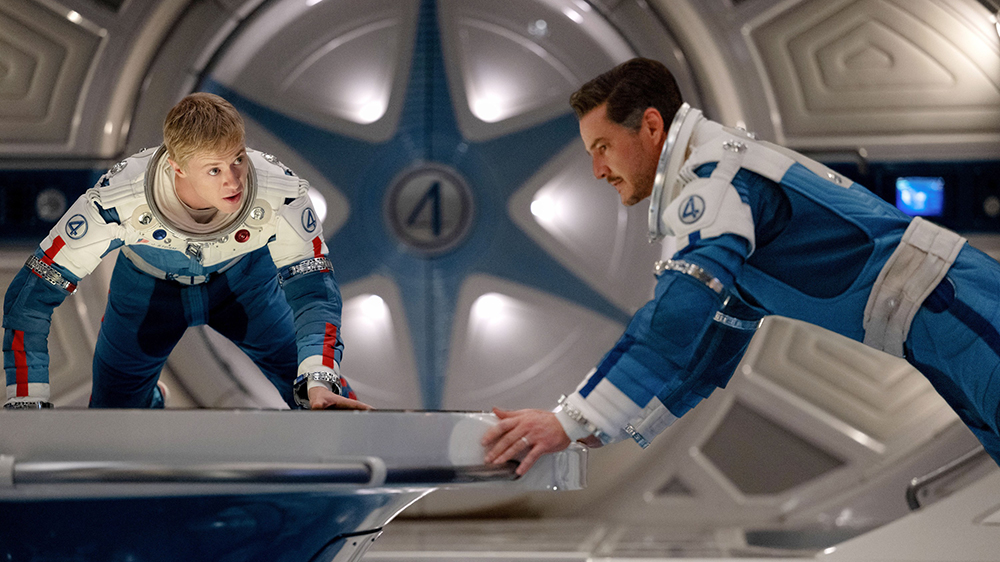If superhero fatigue is a trend that became all too real, the making of the movies that brought it on might be likened to an addiction. The studios that produced those films got hooked on the idea that comic-book movies would be a limitless cash cow. And so they started to make them without limits, jacking up the budgets, the thorny interconnectedness of the characters, and the sheer volume of films they greenlit, each one promising — in theory — to be the box-office equivalent of Christmas Day. But it didn’t work out that way. For audiences, more turned out to be less. After a while, the sheer overkill of comic-book cinema began to look like it might kill the golden goose.
This summer, though, the release of two vital, game-changing superhero movies created a kind of Christmas in July. With “Superman” and “The Fantastic Four: First Steps,” DC and Marvel, the reigning studio factories of superhero movies, have brought off more than just a course correction. They have, in effect, started over, relaunching expectations for a bold new era in which comic-book movies become successful again by avoiding the addictive missteps of the past. Both films have connected with audiences the old-fashioned way: by merging spectacle and emotion, infusing their iconic characters with the kind of human relatability that got squashed in the superhero-overkill era.
That said, even two terrific flagship movies do not a revolution make. James Gunn, the co-chairman of DC Studios (and, not so incidentally, the writer-director of “Superman”), and Kevin Feige, the president of Marvel Studios, have both spoken of the new era they’re embarking upon in the abashed, let’s-own-our-failures language of recovering addicts. Gunn has vowed that he won’t put a superhero movie into production until it has a fully realized, well-carpentered script — the absence of good scripts, in the face of ever-more-bombastic onslaughts of CGI, being the most notorious feature of bad comic-book movies. And Feige has vowed that he’ll produce fewer films and TV spinoffs, and exert the kind of quality control that went out the window at Marvel as the studio went on its bender of more, and lesser, comic-book product. You deeply want to believe these two, because they sound like they mean it, and because anyone who cares about the future of movies has a vested interest in seeing Hollywood maintain a thriving and creatively disciplined blockbuster culture.
In both “Superman” and “The Fantastic Four,” the filmmakers (Gunn and Matt Shakman, respectively) made the very canny decision to spin right past the usual origin-story narratives (Superman’s arrival on earth, how the Fantastic Four got their powers). Both films are, in effect, second chapters. And there’s a tradition in comic-book cinema of second chapters being the charm. “The Dark Knight” is the crowning masterpiece of the whole genre, “Superman II” is, for many of us, deeper and richer than “Superman: The Movie,” and “Spider-Man 2” is universally cherished.
But if second chapters are the sweet spot, they’re also the easy part. “The Fantastic Four,” especially, benefits from the fantastic simplicity of its storytelling design. But the film concludes with a teaser of an end title that I, for one, found worrisome: “The Fantastic Four will return in ‘Avengers: Doomsday’.” In other words: The next time you see these characters, they’ll be in a movie that features 14 superheroes. And just like that, we could once again be in the land of overkill.
I believe Gunn and Feige when they say they’re newly committed to quality control. The challenge they’re going to face is this: As their shiny new universes grow ever more complicated and multi, which is going to start happening in about five minutes, the new DC and Marvel are going to lose, by definition, the elemental, no-strings-attached quality that “Superman” and “The Fantastic Four” have. They’re going to become glorified puzzle pieces again, fitting into a larger more elaborate whole that…we once again stop giving a damn about? I’d be a cynic if I said that was destined to be true. I’d be a realist if I said there’s a very good chance it could be.

